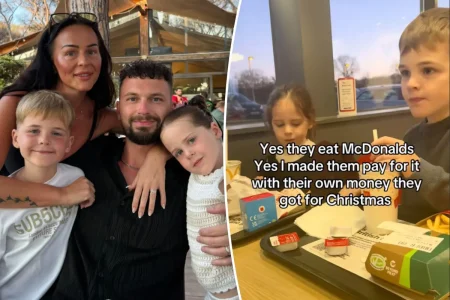Unraveling the Threads of Loneliness and Toxic Family Dynamics: An Extended Exploration of Dear Abby’s Advice
Navigating the complexities of human relationships often presents a myriad of challenges, from the persistent calls of a grieving widower to the deeply wounding words of a toxic parent. The advice column, Dear Abby, offers a window into these personal struggles, providing guidance and support to those grappling with difficult situations. Two letters, in particular, highlight the contrasting facets of human connection: one dealing with the overwhelming presence of loneliness and the other with the painful absence of love and acceptance.
The first letter portrays the predicament of a woman burdened by the incessant calls of her deceased friend’s husband. The widower, an 80-year-old man grappling with health issues and isolation, seeks solace in constant communication, oblivious to the emotional toll it takes on the recipient. While empathy for his loneliness is natural, the sheer volume of calls has become invasive and disruptive. The woman, torn between compassion and her own need for personal space, resorts to fabricating excuses to avoid these interactions. This scenario raises crucial questions about the boundaries of personal responsibility in supporting grieving individuals and the importance of seeking professional help when the burden becomes overwhelming.
Dear Abby’s advice to contact the widower’s adult children is a practical and compassionate solution. It acknowledges the woman’s emotional exhaustion while also addressing the underlying issue of the widower’s well-being. Informing the children allows them to assess their father’s situation and explore options such as assisted living, which can provide both the necessary physical care and much-needed social interaction. This intervention not only alleviates the woman’s burden but also potentially improves the widower’s quality of life. It underscores the importance of community support and professional intervention in addressing the complex needs of aging individuals, especially those experiencing grief and isolation.
The second letter reveals a starkly different relational dynamic, one marked by profound emotional pain inflicted within the family unit. A daughter describes the enduring emotional abuse she suffers at the hands of her mother. The mother’s constant criticisms, hurtful words, and blatant favoritism towards her other daughters create a deeply damaging environment. This daughter’s experience underscores the devastating impact of parental rejection and its potential to shape one’s self-worth and overall well-being.
Dear Abby’s response to this situation acknowledges the painful reality that we cannot choose our families. The advice focuses on empowering the daughter to protect herself from further emotional harm. Limiting contact with the toxic mother and sister is presented as a crucial step towards self-preservation. This recommendation highlights the importance of prioritizing one’s own mental health, even when it involves distancing oneself from family members. The concept of "chosen families" is introduced, offering a hopeful alternative for individuals who have experienced familial dysfunction. Building supportive relationships outside of the biological family can provide the love, acceptance, and validation that may be lacking within the family of origin.
Both letters, though addressing distinct situations, share a common thread: the importance of healthy boundaries and the pursuit of supportive relationships. In the case of the overwhelmed friend, establishing boundaries involves seeking the involvement of the widower’s family to ensure his well-being while protecting her own emotional health. For the unloved daughter, establishing boundaries means creating distance from the toxic family members to safeguard her self-esteem and emotional well-being. These contrasting scenarios demonstrate that maintaining healthy boundaries is essential for navigating the complexities of human relationships, regardless of whether the challenge arises from an overabundance of unwanted attention or a painful deficit of love and acceptance.
The wisdom of Dear Abby’s advice lies in its ability to address the immediate concerns while also offering long-term solutions. In the first case, the recommendation to contact the widower’s children addresses the woman’s immediate need for respite while also paving the way for a more sustainable solution for the widower’s long-term care. In the second case, advising the daughter to limit contact with her toxic family members provides immediate relief from emotional abuse while also encouraging her to seek out healthier relationships that will nurture her emotional well-being in the long run. This dual approach ensures that the advice is not merely a temporary fix but a stepping stone towards building healthier and more fulfilling relationships.
Ultimately, the letters and Dear Abby’s responses offer valuable insights into the multifaceted nature of human connection. They underscore the importance of balancing compassion with self-care, seeking support when needed, and recognizing that healthy relationships are built on a foundation of respect, empathy, and healthy boundaries. The advice provided emphasizes that while we may not be able to control the actions of others, we always have the power to choose how we respond and the kinds of relationships we cultivate. This empowerment to shape our own relational landscape is crucial for navigating the complexities of human connection and creating a life filled with meaningful and supportive relationships.













